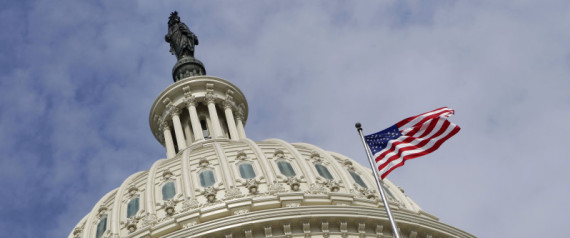 WASHINGTON -- A new report by the Sunlight Foundation, a money in politics watchdog group, reveals that members of the newly formed Joint Select Committee on Debt Reduction are no strangers to high-dollar corporate lobbying.
WASHINGTON -- A new report by the Sunlight Foundation, a money in politics watchdog group, reveals that members of the newly formed Joint Select Committee on Debt Reduction are no strangers to high-dollar corporate lobbying.As part of a series exploring lobbying influence on members of the super committee, the report details the key lobbying priorities of the top corporate donors to three committee members, Rep. Jeb Hensarling (R-Texas), Rep. Dave Camp (R-Mich.) and Rep. Fred Upton (R-Mich.), in an effort to predict how those donors' lobbying interests may affect the deficit reduction process.
"I think it's just something to keep in mind when you look at the committee and the decisions that they're making," said the Sunlight Foundation's Bill Allison. "They're not going to be coming to this entirely with a platonic detachment and trying to come up with a rational solution. They're going to be thinking in terms of balancing competing interest groups."
Though these corporate donations were registered before the formation of the super committee, their impact on the deficit-reducing decisions made by the committee members could certainly be felt.
Hensarling, one of the committee's co-chairs, lists Bank of America, KPMG and the American Bankers Association among his top donors, all of which have lobbied strongly against increased taxes on the banking industry.
Upton has taken campaign donations from Ford Motor Co., which, according the Sunlight Foundation report, has lobbied for legislation "that would permanently extend the tax code provision that allows corporations to avoid U.S. taxes on their foreign earnings, provided they keep those funds overseas."
Camp has likewise received campaign funds from corporations seeking relief from tax and health care costs, including Dow Chemical, which has sought "a permanent extension and expansion of the research and development tax credit," estimated to cost the Treasury $10.7 billion between 2010 and 2014.
The report concedes that even the billions in tax breaks these and other corporations seek to protect may not mean much in the grand scheme of deficit reduction.
Yet that does nothing to reduce the impact corporate donors may have on deficit reduction plans, the Sunlight Foundation contends. In the report, Allison wrote, "What becomes clear from reading the lobbying reports, then looking at the donors' annual reports, press releases, congressional testimony and other information is how much effort is put into defending sums of money that wouldn't make a dent in the total size of the debt."
Origin
Source: Huffington
No comments:
Post a Comment